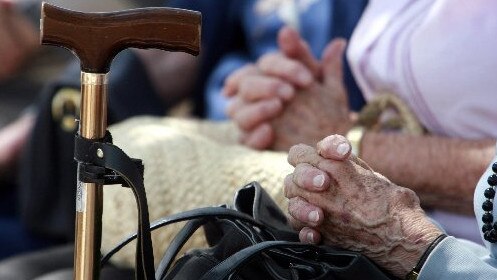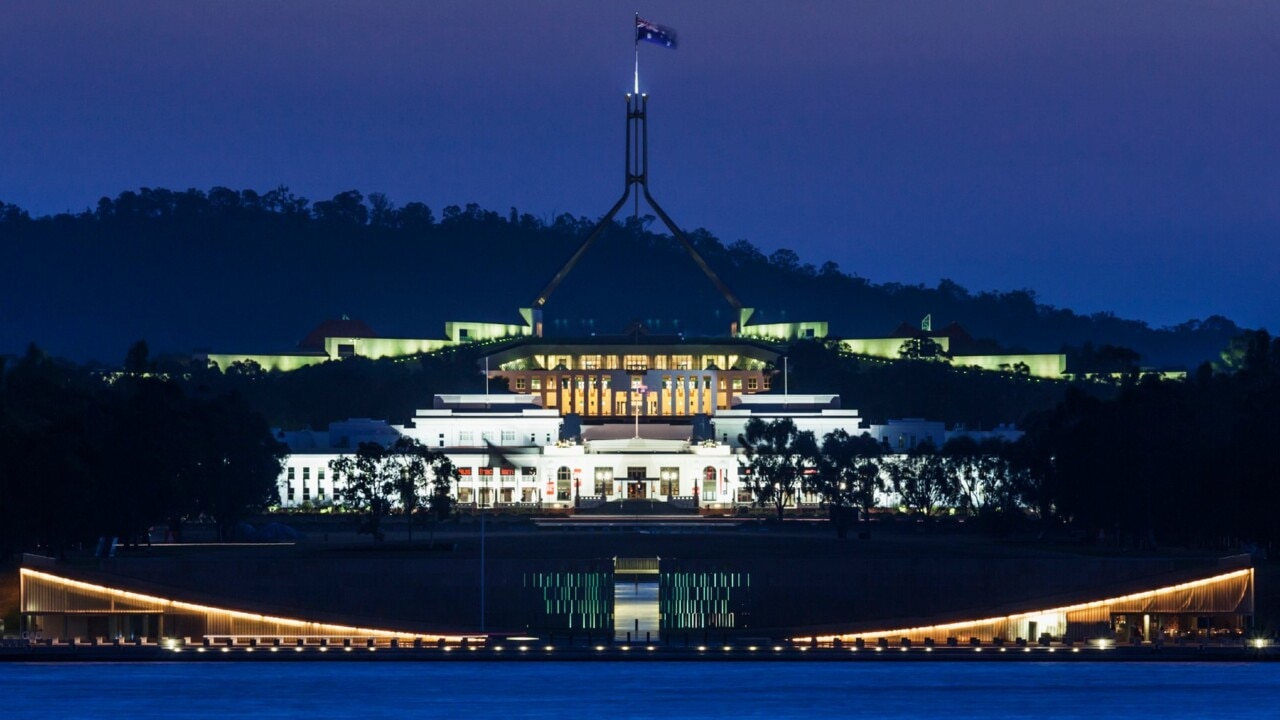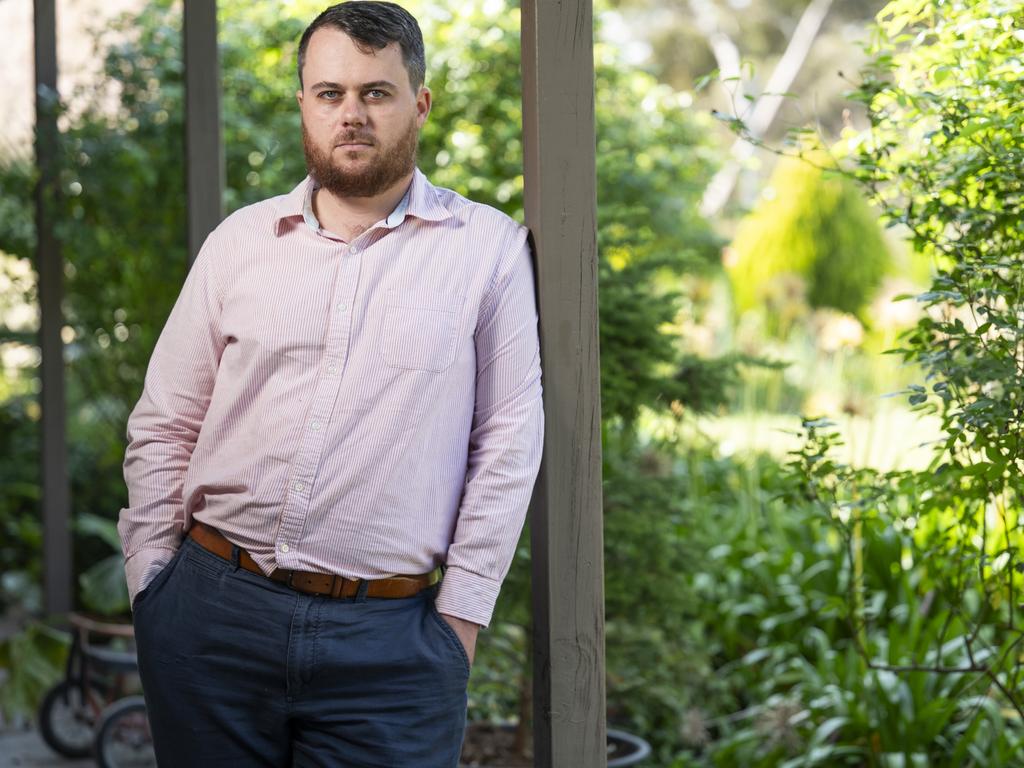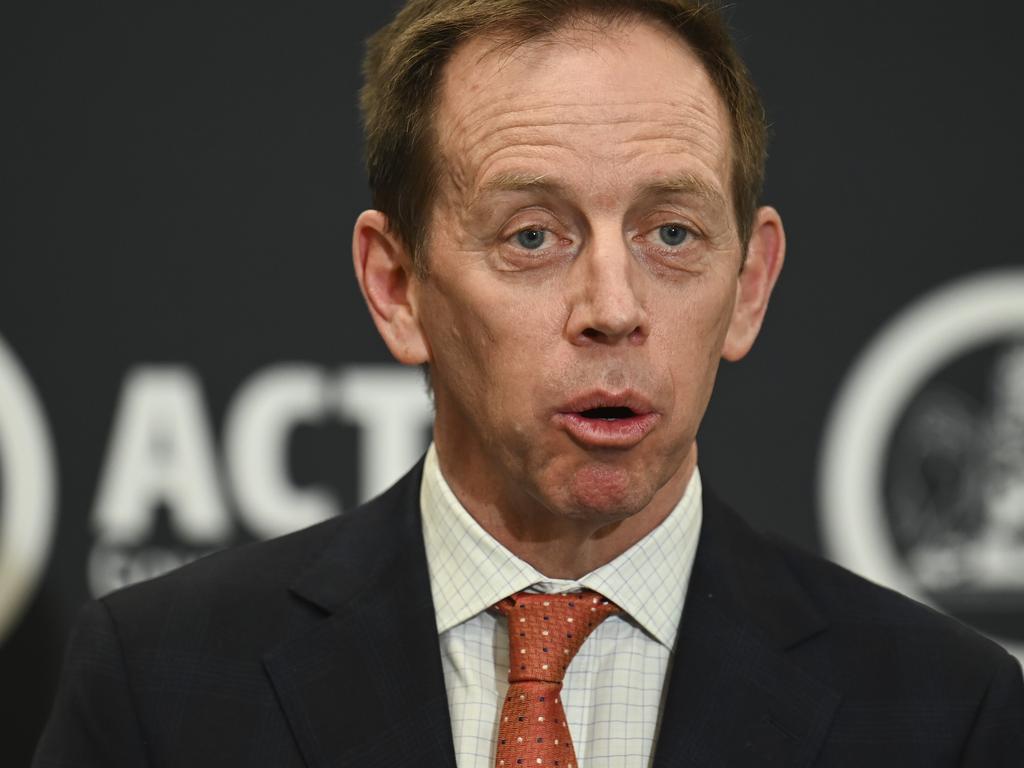ACT euthanasia laws to give nurses green light to discuss assisted suicide with patients
Nurses, social workers and counsellors will for the first time be able to initiate discussions about voluntary assisted dying as an option for terminally ill in the ACT.

Nurses, social workers and counsellors will for the first time be able to initiate discussions about voluntary assisted dying as an option for terminally ill people in the ACT, under what will be the most liberal framework in the country if enshrined into law.
The legislation, which the Labor-Greens government introduced to the ACT parliament on Tuesday, also elevates the position of nurses to play a role in conducting assessments of a patient’s eligibility and administering the life-ending medication.
In another unprecedented move, the bill departs from the rules in other jurisdictions by allowing patients to access assisted suicide without having a predicted time of death of 12 months or less.
Terminally ill people are able to access assisted suicide if doctors say they have fewer than six months to live in Victoria, Tasmania, NSW, South Australia and Western Australia, or 12 months in Queensland.
Canberrans will need to have been diagnosed with a condition that is “advanced, progressive and expected to cause death”, be enduring intolerable suffering and to have lived in the ACT for a year or be able to demonstrate a “substantial connection” to the territory to access the scheme.
They will also be required to be at least 18-years-old, after the ACT government shelved a proposal to abandon the “arbitrary” age cap in place in other jurisdictions by opening the scheme to minors.
A disability, mental disorder or mental illness alone is not a relevant condition in order to qualify, as in other states.
The ACT was given the green light to legalise euthanasia last year when federal parliament overturned laws banning territory governments from implementing euthanasia, which had been in place for more than two decades.

ACT Human Rights Minister Tara Cheyne, who took carriage of the reforms, said the legislation protected the “autonomy and dignity” of Canberrans enduring intense suffering at the end of their lives.
“We have consulted widely in developing our evidence-based model, which responds to the known issues in other jurisdictions and reflects the ACT’s unique circumstances, together with the Canberra community’s views,” she said.
“This is a historic day for Canberrans. With so many in the community supporting voluntary assisted dying, I am proud to have delivered this reform within a year of our Territory rights being restored.”
The Barr government has the numbers to pass the legislation through the legislative assembly unamended.
ACT Opposition Leader Elizabeth Lee said the Canberra Liberals would have a conscience vote on the laws, after it is reviewed by a committee of Legislative Assembly Members.
Ms Lee said the suggestion health professionals other than doctors could initiate conversations about assisted dying “raises some alarm bells”, as well as the rejection of any “time frame in relation to death”.
Medical oncologist Cameron McLaren, who is the inaugural president of Voluntary Assisted Dying Australia and New Zealand, said doctors in Western Australia, Queensland, NSW and Tasmania could already initiate discussions about euthanasia as part of a broader conversation about a person‘s treatment and palliative care options.
But the ACT‘s legislation marked the first time nurses, social workers and counsellors could also start those discussions.

“This goes a step further to ensure patients are aware of their options. I don’t see that as a deficit or weakness, I see that as a strength,” Dr McLaren said.
“A lot of people have intimate discussions with nurses and other allied health team members such as social workers. It’s not uncommon for social workers to come to doctors to say ‘we had a discussion about this, this is what they told me they want’. They’re often positioned really well to have these discussions.”
Dr McLaren was critical of the so-called gag clause in jurisdictions like Victoria, where doctors aren’t allowed to initiate conversations about VAD.
“It’s like telling people who have heart disease, ‘I can talk to you about stents but unless you initiate it I can’t talk to you about surgery’. It doesn’t lend itself to fully informed consent. We think what’s appropriate to discuss with a patient should be left out of legislation and entrusted to the people who know the patients the best; their doctor, and their multidisciplinary treatment team,” he said.
The ACT legislation specifies that health professionals including social workers and counsellors will be able to “initiate a conversation about voluntary assisted dying” if the individual has a terminal condition, inform the patient of palliative care options and ensure they discuss the options with their doctor.
Doctors and nurse practitioners can discuss assisted suicide as an option if they are satisfied they have the expertise to raise palliative care and other treatment options.
However, a patient must make their first official request to access VAD to a health practitioner, a doctor or nurse practitioner, in writing or orally.
Queensland University of Technology expert on end-of-life law Ben White said he supported provisions in the bill that empowered nurse practitioners to assess patient’s eligibility for the scheme, saying that it balanced “safety with accessibility”.
“One sensible change is allowing one of the practitioners assessing eligibility to be a nurse practitioner, considering the challenges in other states where there have been difficulties finding willing doctors,” Professor White said.
“Nurse practitioners are a trusted group of practitioners; we trust them in other end of life settings, and it‘s safeguarded in the legislation that if they’re not sure if someone is eligible they have to refer it to someone else.”
Nurses already play a role in administering voluntary assisted dying schemes in WA, Tasmania, Queensland and NSW once its active on November 28.
Go Gentle Australia chief executive Linda Swan also said she welcomed the elevated role of nurse practitioners within the scheme.
“Nurse practitioners are highly experienced and autonomous healthcare professionals. We are confident their role alongside doctors will help improve access to VAD in the ACT,” she said.
Dr McLaren, who consulted the ACT government on its proposed reforms, was particularly supportive of the territory removing the prognosis guidelines where a patient’s relevant condition must be expected to cause their death within six or 12 months to access euthanasia.
“It’s hard to tell someone you haven’t suffered for long enough. We’re very supportive of the removal of prognostic requirements, it’s more based around suffering and patient autonomy,” Dr McLaren said.







To join the conversation, please log in. Don't have an account? Register
Join the conversation, you are commenting as Logout